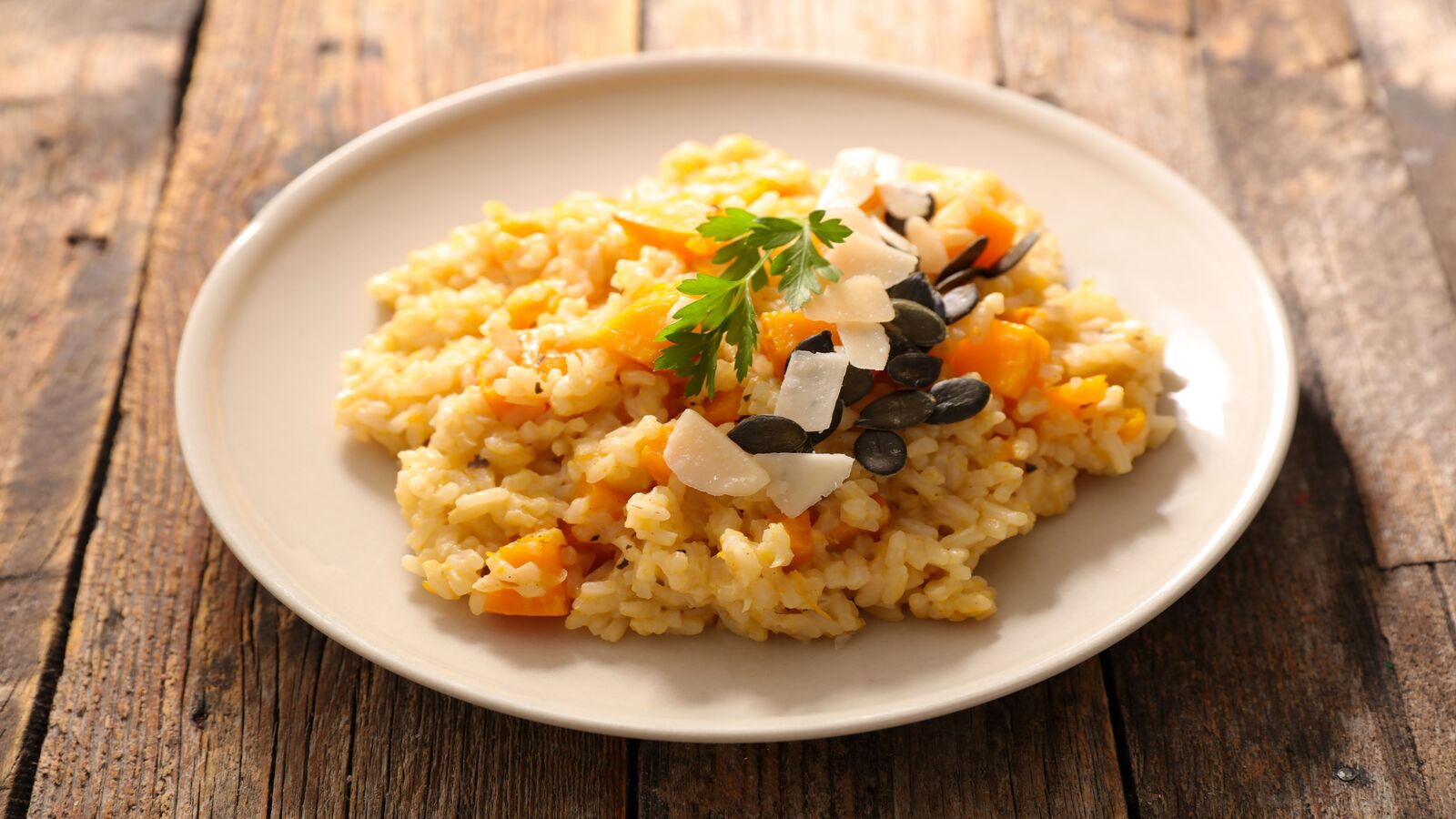
Risotto is a beloved Italian dish that has gained popularity worldwide for its creamy texture and rich flavors. Made with Arborio rice, broth, and a variety of ingredients, risotto is a versatile dish that can be customized to suit different tastes and dietary preferences. Not only is risotto delicious, but it also offers a range of nutritional benefits. In this article, we will explore 18 risotto nutrition facts that highlight the health-promoting properties of this delectable dish. From its high fiber content to its abundance of vitamins and minerals, risotto proves that good food can be both tasty and nourishing. So, if you’re curious about how risotto fits into a balanced diet, keep reading to discover the nutritional value of this Italian classic.
Key Takeaways:
- Risotto is a creamy Italian dish that’s low in fat and high in fiber, vitamins, and minerals, making it a delicious and nutritious choice for a well-balanced meal.
- With its versatility and heart-healthy benefits, risotto is not only a tasty dish but also a great option for promoting satiety and overall health.
Calories
Risotto is relatively low in calories compared to other rice dishes, with an average serving containing around 200-300 calories.
Carbohydrates
Risotto is rich in complex carbohydrates, providing a steady source of energy for the body.
Protein
Despite being a rice dish, risotto also contains a decent amount of protein, helping to repair and build tissues in the body.
Fat
Risotto is generally low in fat, especially if you use low-fat cooking methods and ingredients.
Fiber
Risotto made with whole-grain or brown rice contains dietary fiber, which aids in digestion and promotes bowel regularity.
Vitamins
Risotto is a good source of various vitamins, including vitamin B, vitamin D, and vitamin E, which play important roles in maintaining overall health.
Minerals
Risotto contains essential minerals such as iron, magnesium, and zinc, which support vital bodily functions.
Sodium
Be mindful of the sodium content in risotto, especially if you add salty ingredients like cheese or cured meats.
Calcium
If you use ingredients like Parmesan cheese, risotto can contribute to your daily calcium intake.
Potassium
Risotto contains potassium, a mineral that helps maintain proper heart and muscle function.
Antioxidants
Some risotto variations, such as mushroom risotto, are rich in antioxidants that help protect the body against oxidative stress.
Low Cholesterol
Risotto made with low-fat ingredients is generally a heart-healthy dish, low in cholesterol.
Gluten-Free Option
By using gluten-free grains like arborio rice or quinoa, risotto can be a suitable choice for individuals with gluten intolerance or celiac disease.
Balanced Nutrition
Risotto, when prepared with a mix of vegetables and lean proteins, can provide a well-balanced meal, offering a combination of carbohydrates, proteins, and fats.
Satiety
The creamy consistency of risotto, combined with its high fiber content, helps promote a feeling of fullness and satiety.
Versatility
Risotto can be customized with various ingredients, from vegetables and seafood to meats and herbs, making it a versatile dish to suit different dietary preferences.
Heart-Healthy
A well-crafted risotto recipe using heart-healthy fats like olive oil and incorporating ingredients like garlic and herbs can be beneficial for cardiovascular health.
Delicious and Nutritious
Above all, risotto is not only nutritious but also incredibly delicious, making it a satisfying choice for any meal.
Conclusion
Risotto is not only a delicious and versatile dish, but it also offers several nutritional benefits. With its rich flavors and creamy texture, risotto can be a satisfying and nutritious addition to any meal. It is a great source of carbohydrates and provides essential nutrients such as fiber, protein, vitamins, and minerals. Additionally, risotto can be customized with various ingredients, making it a versatile option for vegetarians or those with dietary restrictions. So, the next time you indulge in a plate of risotto, you can enjoy it knowing that it not only tastes amazing but also provides you with valuable nutrients.
FAQs
1. Is risotto high in calories?
Risotto can be calorie-dense, especially if it contains ingredients like cheese, butter, or cream. However, you can make a healthier version by using low-fat dairy products and incorporating more vegetables.
2. Is risotto gluten-free?
Traditionally, risotto is made with Arborio rice, which is gluten-free. However, some restaurants may add flour or use barley rice to enhance the consistency, so it’s essential to check the ingredients or opt for homemade gluten-free versions.
3. Can risotto be a part of a weight-loss diet?
While risotto can be high in calories, it can still be enjoyed in moderation as part of a balanced diet for weight loss. Consider portion control and choosing healthier ingredients to make it more diet-friendly.
4. Can risotto be made vegan?
Absolutely! Risotto can be easily made vegan by using vegetable broth instead of chicken or beef broth and omitting dairy products. You can also add flavorsome ingredients like mushrooms, asparagus, or roasted vegetables for added taste.
5. How can I add nutritional value to risotto?
To boost the nutritional profile of your risotto, you can incorporate ingredients like spinach, kale, peas, or broccoli. These vegetables are packed with vitamins, minerals, and fiber, making your risotto not only delicious but also more nutritious.
Was this page helpful?
Our commitment to delivering trustworthy and engaging content is at the heart of what we do. Each fact on our site is contributed by real users like you, bringing a wealth of diverse insights and information. To ensure the highest standards of accuracy and reliability, our dedicated editors meticulously review each submission. This process guarantees that the facts we share are not only fascinating but also credible. Trust in our commitment to quality and authenticity as you explore and learn with us.
